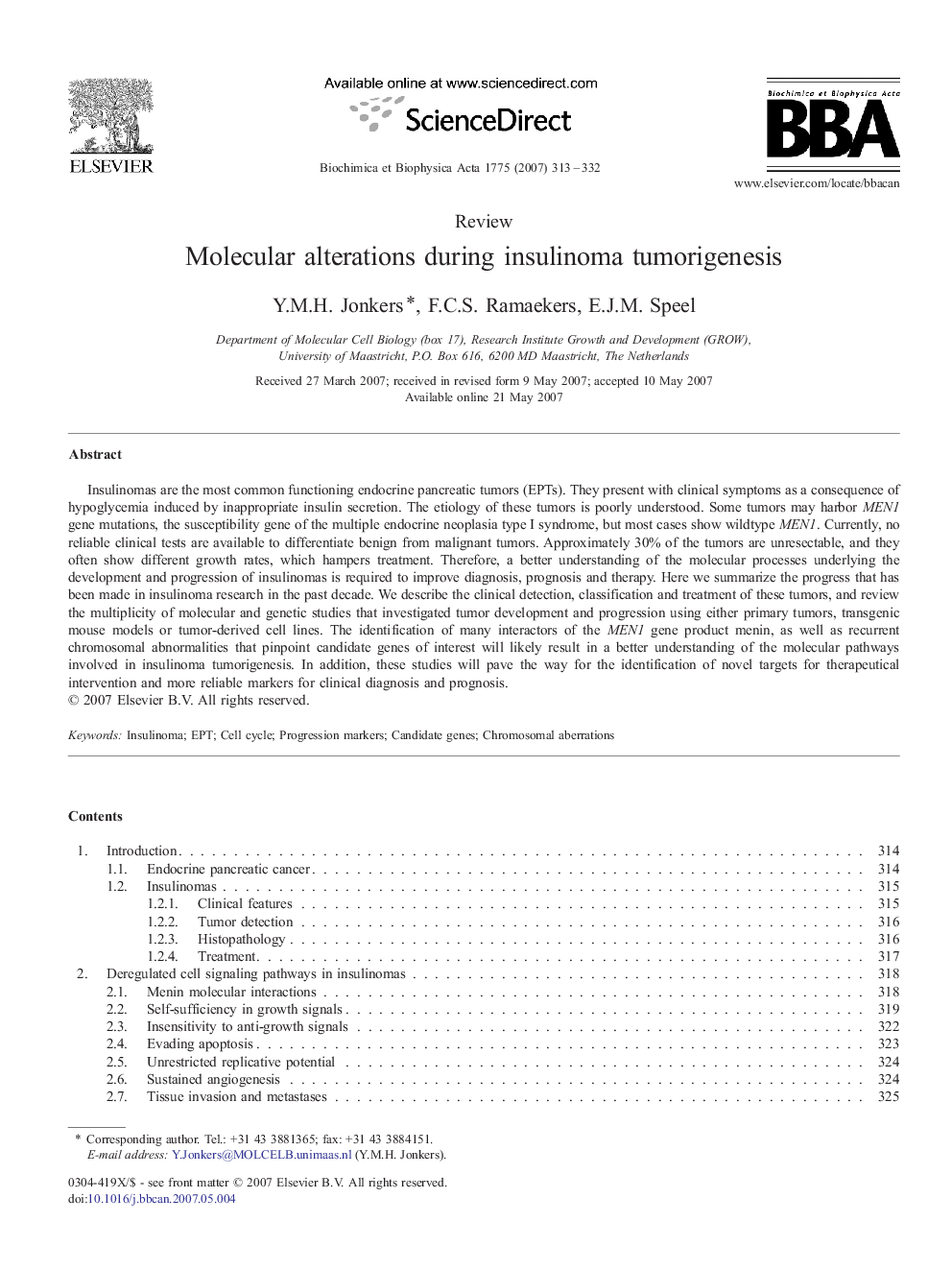| Article ID | Journal | Published Year | Pages | File Type |
|---|---|---|---|---|
| 2101180 | Biochimica et Biophysica Acta (BBA) - Reviews on Cancer | 2007 | 20 Pages |
Insulinomas are the most common functioning endocrine pancreatic tumors (EPTs). They present with clinical symptoms as a consequence of hypoglycemia induced by inappropriate insulin secretion. The etiology of these tumors is poorly understood. Some tumors may harbor MEN1 gene mutations, the susceptibility gene of the multiple endocrine neoplasia type I syndrome, but most cases show wildtype MEN1. Currently, no reliable clinical tests are available to differentiate benign from malignant tumors. Approximately 30% of the tumors are unresectable, and they often show different growth rates, which hampers treatment. Therefore, a better understanding of the molecular processes underlying the development and progression of insulinomas is required to improve diagnosis, prognosis and therapy. Here we summarize the progress that has been made in insulinoma research in the past decade. We describe the clinical detection, classification and treatment of these tumors, and review the multiplicity of molecular and genetic studies that investigated tumor development and progression using either primary tumors, transgenic mouse models or tumor-derived cell lines. The identification of many interactors of the MEN1 gene product menin, as well as recurrent chromosomal abnormalities that pinpoint candidate genes of interest will likely result in a better understanding of the molecular pathways involved in insulinoma tumorigenesis. In addition, these studies will pave the way for the identification of novel targets for therapeutical intervention and more reliable markers for clinical diagnosis and prognosis.
